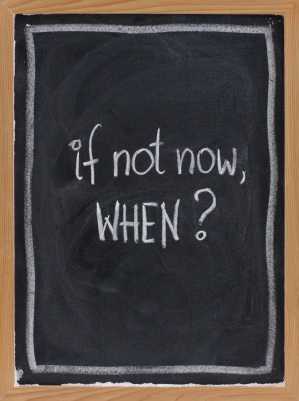As A Physician, Can You Work For Someone Else?
 How important is our autonomy as physicians?
How important is our autonomy as physicians?
Have you ever wondered how difficult it might be to work for someone else, when we're wired and trained to value our autonomy as one of the perks of being a physician? Many physicians making a transition from clinical practice struggle with the impact of losing autonomy in their decisions and actions. Here are some observations from my experiences that might help you as you contemplate making some changes in your life and career.
First, recognize that your biggest challenge as a physician in moving to working for Wall Street, a pharmaceutical firm, a start up company, an insurer, or just about any job that doesn't require you to be in direct patient care, will be adapting to your role in a heirarchy. Most physicians at ACPE cite this transition as their most difficult. After some awkward moments in making the transition, we all learn what we were never taught in our medical training!
To give up absolute autonomy doesn't mean that your input isn't important. It's just one piece of input among many others. Good group process and good decisions requires multiple viewpoints, disagreement, and vigorous discussion. Physicians trained in the military, who are familiar with leadership principles, say the first step to good leadership is to understand "good followership". Sometimes we're members of a team, other times we're asked to lead a team. You've got to understand both roles.
Second, recognize that a good boss doesn't necessarily have anything to do with being a physician. One of my top two bosses over the past twenty years was an insurance executive. Chain smoker, equally comfortable in a plaid sports coat or a pin stripe suit, he was one of the most ethical, honest, and exciting people I've ever worked with.
We disagreed frequently on issues, but I supported him when his actions made physicians upset because he never crossed an ethical boundary, and his intentions were good. For example, one day he said he wanted to notify all physicians on our networks that their physician-owned malpractice company was going broke. I told him the physician leaders of the company, who were also key figures in the medical society, would be furious. As an insurance executive he felt obligated to notify the malpractice carrier's insureds that they could be left high and dry. He asked for my support when the physician leaders reacted. I gave him my support, and was there when they had that contentious face to face conversation in his office. And the malpractice carrier did become insolvement about 9 months later.
In contrast, some of the worst bosses I've ever had were physicians. Maybe they turned out that way because they were so focused on themselves, and their autonomy? Conversely, maybe I didn't understand good followership? Whichever it was, it wasn't good for any of us.
Third, keep your "physicianhood" in perspective. Though we're all very proud and honored to be part of our profession, other people and professionals are also proud of their hard work and commitment to their occupation or calling. Think of your training as a physician as the foundation for whatever else you want to do in life. If, because you're a physician, you think and act superior to others in business, art, publishing, or at the machine shop, you'll have a hard time working for someone else.
Our "tribe" - physicians - makes it hard for us to venture in different directions from our clinical care training. We have to be aware of that, but be determined to listen to the pull of other non-clinical interests that are attracting us to new ventures. By exploring the issue of autonomy, and seeking to behave differently from our training, the path will become much clearer.





 Post a Comment
Post a Comment




